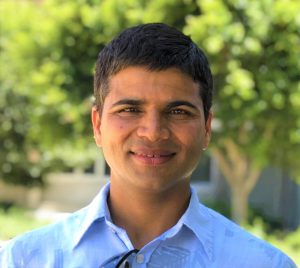Please tell us about your career pathway to date (positions and institutes).
I graduated from Tribhuvan University, Nepal, with a Master Degree in Public Health in 2010. Post-graduation, I worked at Nepal Public Health Foundation as a program manager (2011-2014) in an implementation research project, which aimed at exploring the barriers to scaling up skilled birth attendant’s utilisation in improving maternal, newborn and child health in Nepal. In 2015, I joined Tribhuvan University as an Asst. Professor (Public Health). With my background in implementation research, I developed further interest in this space. In 2018, I joined Deakin University for my PhD. My project focuses on understanding the implementation of telehealth interventions, which is aligned with my supervisor-led research projects: ‘Smartphone Cardiac Rehabilitation, Assisted Self-Management (SCRAM)’, and “Identifying barriers, facilitators and strategies for implementing cardiac telerehabilitation to address access inequalities in Western Victoria’, funded by NHMRC and Western Alliance respectively.
How would you briefly describe your current research/job to someone who is not familiar with your field of study/work? What is your main research interest?
My research project aims to understand how to implement better and scale-up digital health interventions in a real-world setting. Evidence shows that telehealth interventions are effective and cost-effective for self-management of coronary heart disease in controlled settings. However, there is not adequate evidence on how to translate those interventions into routine clinical practice.
The overarching aim of my research is to understand the factors that influence the potential implementation and scale-up of cardiac telerehabilitation intervention (SCRAM) into routine clinical practice exploring the perspective of different stakeholders (patients, practitioners and providers) in metropolitan, regional and rural Victoria, Australia. Furthermore, I will identify the potential optimal economic models for its delivery.
What are the main barriers you encounter/experience when conducting research, or what information/skills do you lack to conduct high-quality research?
Finding a sufficient number of study participants was a significant barrier. Because of COVID-19 pandemic, recruitment of new participants in one of the research projects was suspended; therefore, I was not able to interview an adequate number of participants from one of the three study sites. Moreover, recruitment of participants, primarily practitioners and providers, is a challenge that I have recently experienced. Unavailability of healthcare providers is mostly because of their hectic schedule delivering telehealth services to their patients in this challenging situation.
What could help you as a student/ECR to further develop/grow in your current position?
Mentoring and networking. I have found that affiliation with a team or a professional organisation provides better opportunities to meet and interact with experts working in the same space. Experience sharing and guidance of experts help student/ECR to develop their confidence. Networking during training, workshop and conferences could be instrumental for future collaboration. Remarkably, the conferences have been rewarding in my case.
What do you think will be the next most important development in the nutrition and/or physical activity field?
I believe that we have generated more evidence in the field of nutrition and physical activity. However, there is a significant gap in translating that evidence in a real-world setting, termed as ‘Know-Do’ gap. Several factors, such as individual, organisational, socio-cultural and political, influence implementation of evidence-based interventions. Therefore, understanding the context-specific barriers and facilitators is crucial for better translation of evidence into practice and have a real impact at the population level. I am quite optimistic about the growing scope of implementation research in the near future.
You can get in touch with Narayan via email: nsubedi@deakin.edu.au or Twitter: @nsubedi_np


